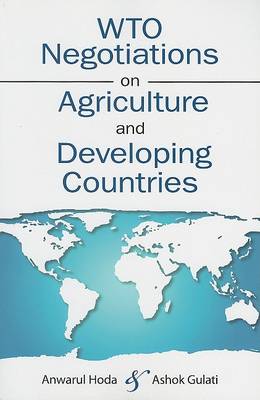The World Trade Organization's Doha Round of trade talks has been plagued by a lack of concrete progress toward establishing a fair and harmonious agricultural trading system. Because the results of the Doha Round could have far-reaching implications for the trade and economic prospects of developing countries in the twenty-first century, it is critical for these countries to fully understand the issues involved in the negotiations on agriculture. However, there has been no authoritative analysis of the rules and modalities on which governments of developing countries can rely. This book, coauthored by an insider to the trade talks that led to the establishment of the WTO, fills this gap. The volume begins with a detailed analysis of the provisions of the WTO's Agreement on Agriculture and the modalities of the negotiations. It examines the implementation experience of key members of the WTO, then traces the developments in the negotiations up to the recent impasse. In light of these considerations, and on the basis of a case study of India, the authors propose various elements of a negotiating position and strategy for developing countries.
The authors offer tough but realistic recommendations regarding tariffs, market access, treatment of sensitive or special products, and other aspects of international trade. This book will be of particular interest to researchers and practitioners as well as students seeking in-depth knowledge of the recent history of agricultural trade talks.
- ISBN10 0801887933
- ISBN13 9780801887932
- Publish Date 1 December 2007
- Publish Status Out of Print
- Out of Print 16 March 2021
- Publish Country US
- Imprint Johns Hopkins University Press
- Format Paperback (US Trade)
- Pages 320
- Language English
